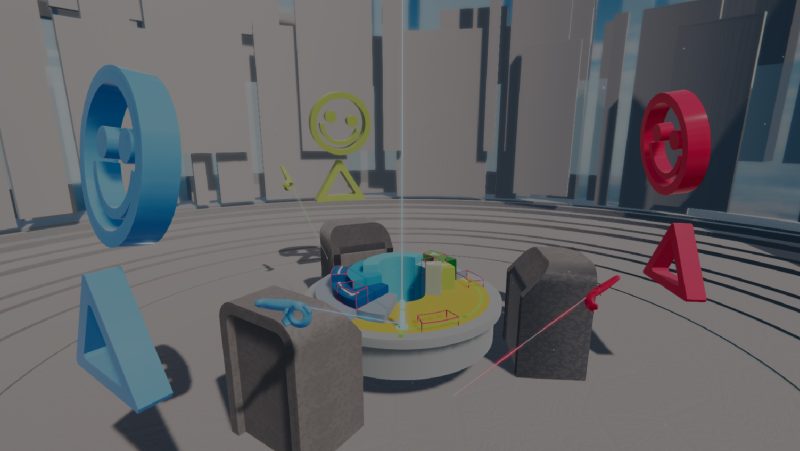For the Swisslex, the leading legal database in Switzerland, Gbanga developed in collaboration with Roth&Maerchy the multiplayer VR puzzle game "SLX Arena" for the 9th Lawyers' Congress in the KKL Luzern.
The VR game called SLX Arena was developed by Swiss agency Gbanga developed and implemented for Swisslex. The game encourages players to work together and has really interesting gameplay. Each of the three players represents one of the three legal pillars: the bar, the public prosecutor's office and the judiciary.
The medium of VR was chosen because it provides a fascinating immersion for the conference participants, i.e. the immersion of the players in a virtual world. Gbanga developed the interactive puzzle for the exhibition participants, who each have to work together with different game skills in order to achieve the common game goal.
Cooperative Game
The visual representation of the level is based on the Swisslex logo shape. In this circular design of the playing area, players must work together to transport an avatar from outside to the centre of the game. One player can move the avatar from tile to tile, a second player can move blocks up and down, and a third player can rotate rings to allow new connections.
Take away the fear of the new experience for VR newcomers
Interactions with the game environment are deliberately kept to a minimum, because for many the SLX Arena is probably their first encounter with VR technology. Thus, the players also used the Vive headset with only one controller. The entire game can also be played standing still, which reduces motion sickness and the fear of running into an object.
The SLX Arena was able to play at the 9th annual Lawyers' Congress in the KKL Lucerne for two days. The feedback was overwhelming. The players underlined the feeling of teamwork and the joy of solving the puzzle together.
Multiplayer in Virtual Reality
Multiplayer experiences in games are a proven concept. However, it is hardly ever implemented in VR games. SLX Arena is one of the few VR games in which several players cooperate with each other simultaneously. This requires a mature low-latency infrastructure and efficient network handling of the game software.









